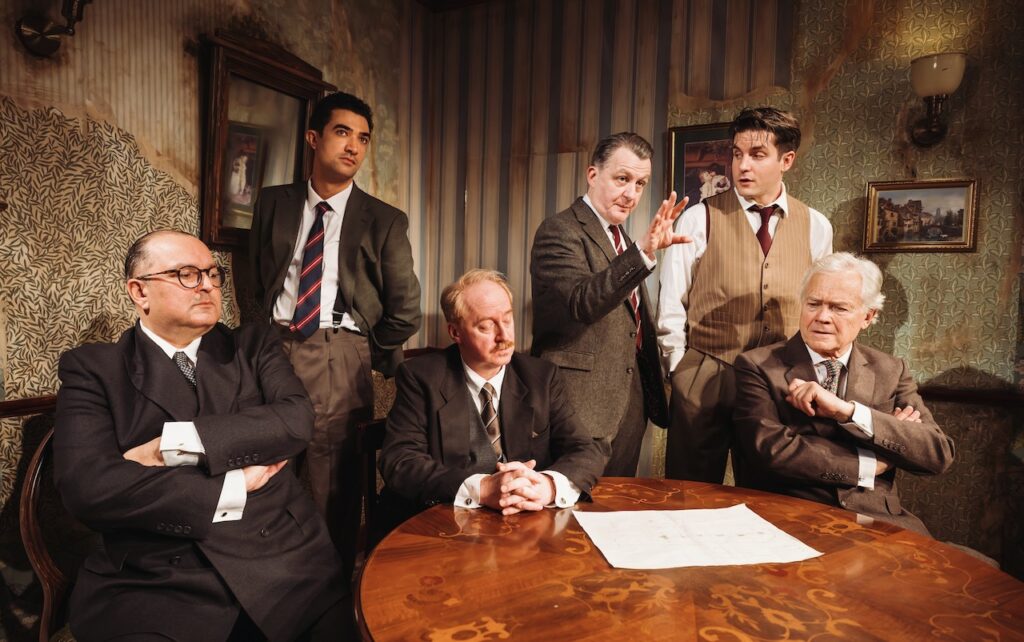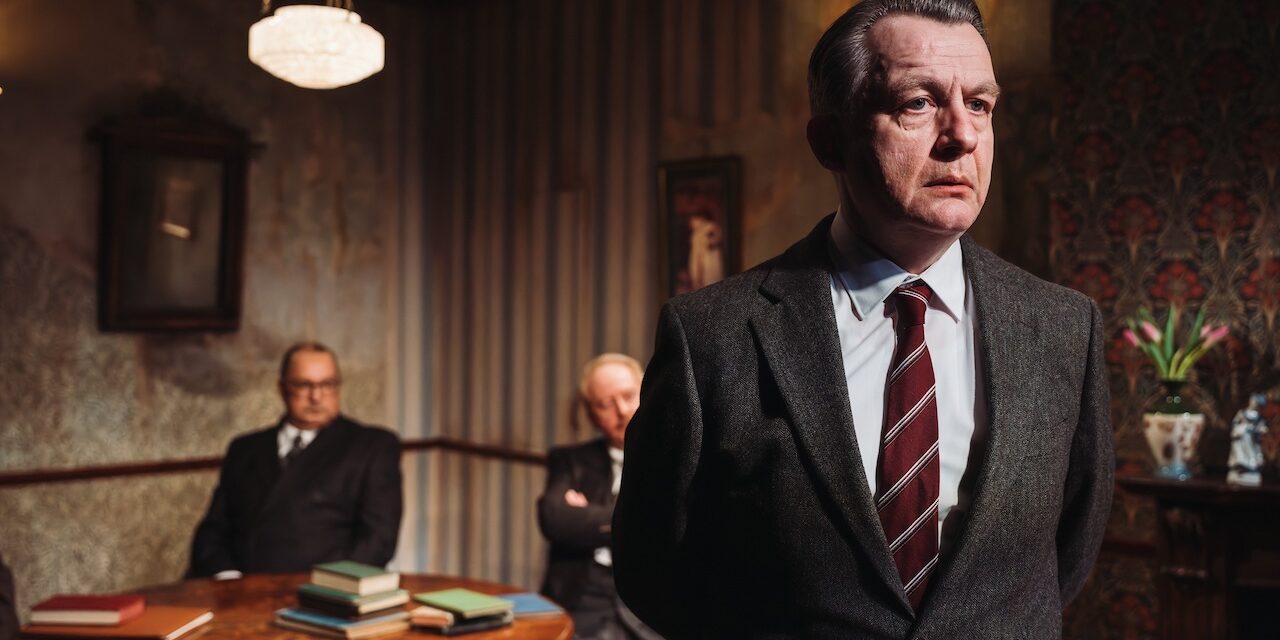
12 – 15 April
Farm Hall is a remarkable achievement for first-time playwright Katherine Moar. In a tautly written ninety minutes she succeeds in bringing to life intriguing questions regarding Nazi Germany’s failed attempt to build an atomic bomb.
In 1939 German scientists were in the vanguard of atomic research, so why did they fail? Nearly eighty years after that conflict ended that question remains the subject of speculation. Immediately after the war ten leading German physicists were interned at Farm Hall, a country mansion in Cambridgeshire, where their conversations were secretly recorded. Katherine Moar has taken six of these scientists and has imaginatively recreated their discussions, including the pivotal moment when they learn of the Hiroshima bomb being dropped by the United States.
All the action takes place in one shabby but comfortable room. Initially, the mood is relatively light. The writing is admirably economic, swiftly depicting the six different personalities. The senior man is Heisenberg, famous for establishing the ‘uncertainty principle’. Ironically, we discover that there is much that is uncertain about Heisenberg himself, an ambiguity that is neatly captured in Alan Cox’s performance. Far less ambiguous is Diebner (Julius D’Silva), an unapologetic Nazi who is shunned by the others. Relationships are otherwise cordial. They are all bored, but make attempts to entertain themselves by playing chess and, bizarrely, having a read-through of Coward’s Blithe Spirit. With varying degrees of enthusiasm, they anticipate the arrival of a piano.
The atmosphere darkens when they hear of the Americans’ success. There is incredulity, followed by grudging admiration. As they contemplate the death and destruction that must have occurred there is some agonised soul-searching, particularly from Hahn (Forbes Masson), whose work on nuclear fission made the bomb possible. His self-lacerating response is powerfully conveyed and is for me the emotional highlight of the play.
The others are less inclined to feel directly responsible, and there is equivocation – ‘If it had not been you, it would have been somebody else.’ They also debate the degree to which they were committed to the Nazi cause. Weizäker (Daniel Boyd) has family close to leading figures in the Nazi party, and Bagge (Archie Backhouse) was a member of the party himself, though both express relief that Germany did not develop the bomb. They argue about the possible causes for Germany’s failure, including Heisenberg’s gross over-estimation of the quantity of Uranium 235 that would be needed to make an atomic weapon. Was this error intentional? In a final soliloquy Heisenberg teases us with the possibility that his commitment to the German project was not all that it seemed. He remains enigmatic to the end.
Farm Hall is admirably successful in presenting complex ideas in an accessible and convincing fashion. Ably directed by Stephen Unwin and with a talented cast, it undoubtedly engages the mind, but it is perhaps a little too dry at times. Comparisons with Michael Frayn’s Copenhagen may not be entirely fair, but are inevitable, given that they tackle very similar themes. Copenhagen has an emotional energy that this play cannot match. However, Farm Hall has much to offer, and vividly dramatizes some important questions regarding science and morality.
★★★☆☆ Mike Whitton, 13 April, 2023
Photo credit: Alex Brenner


